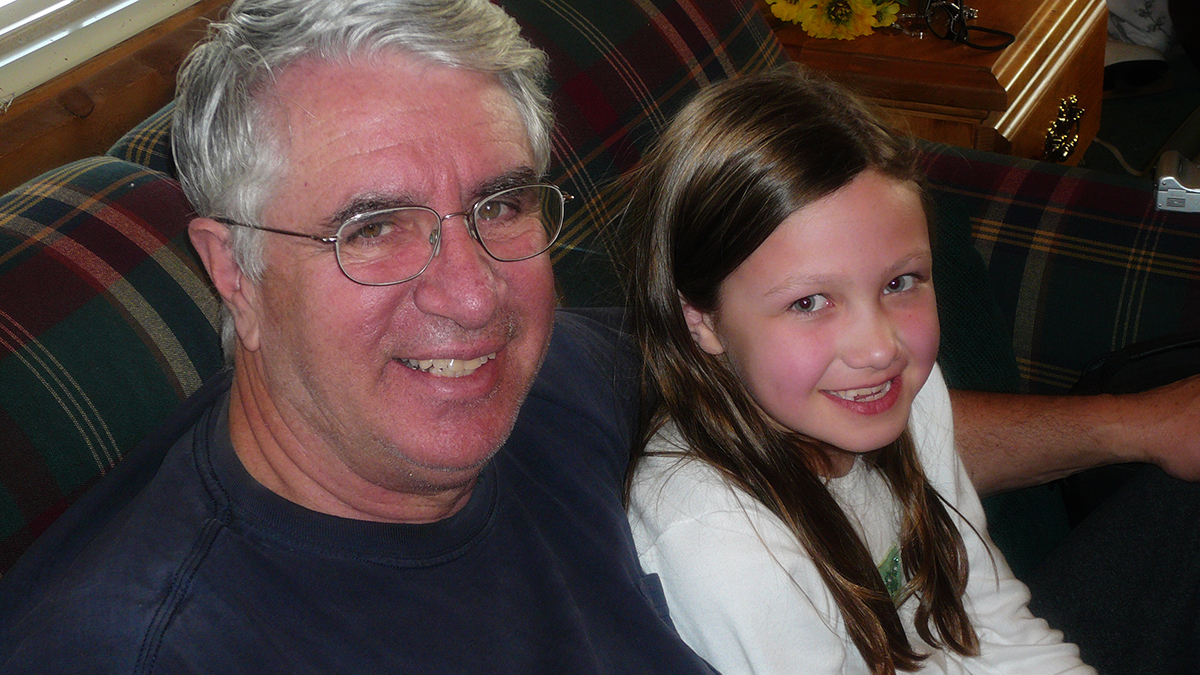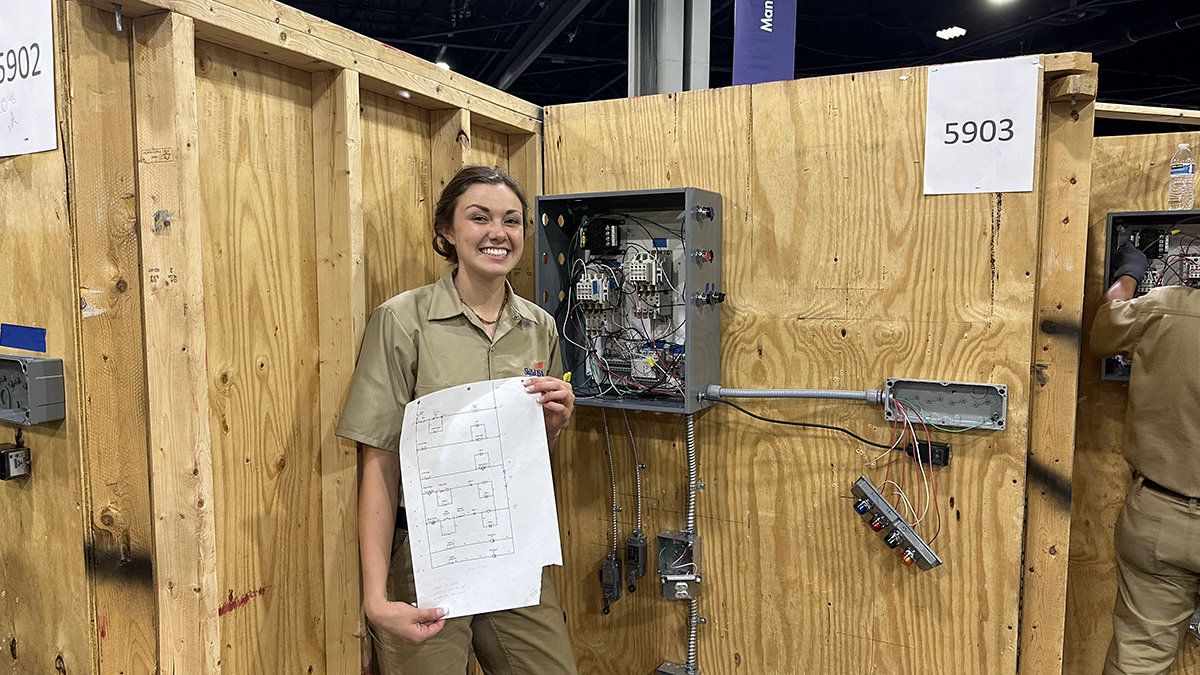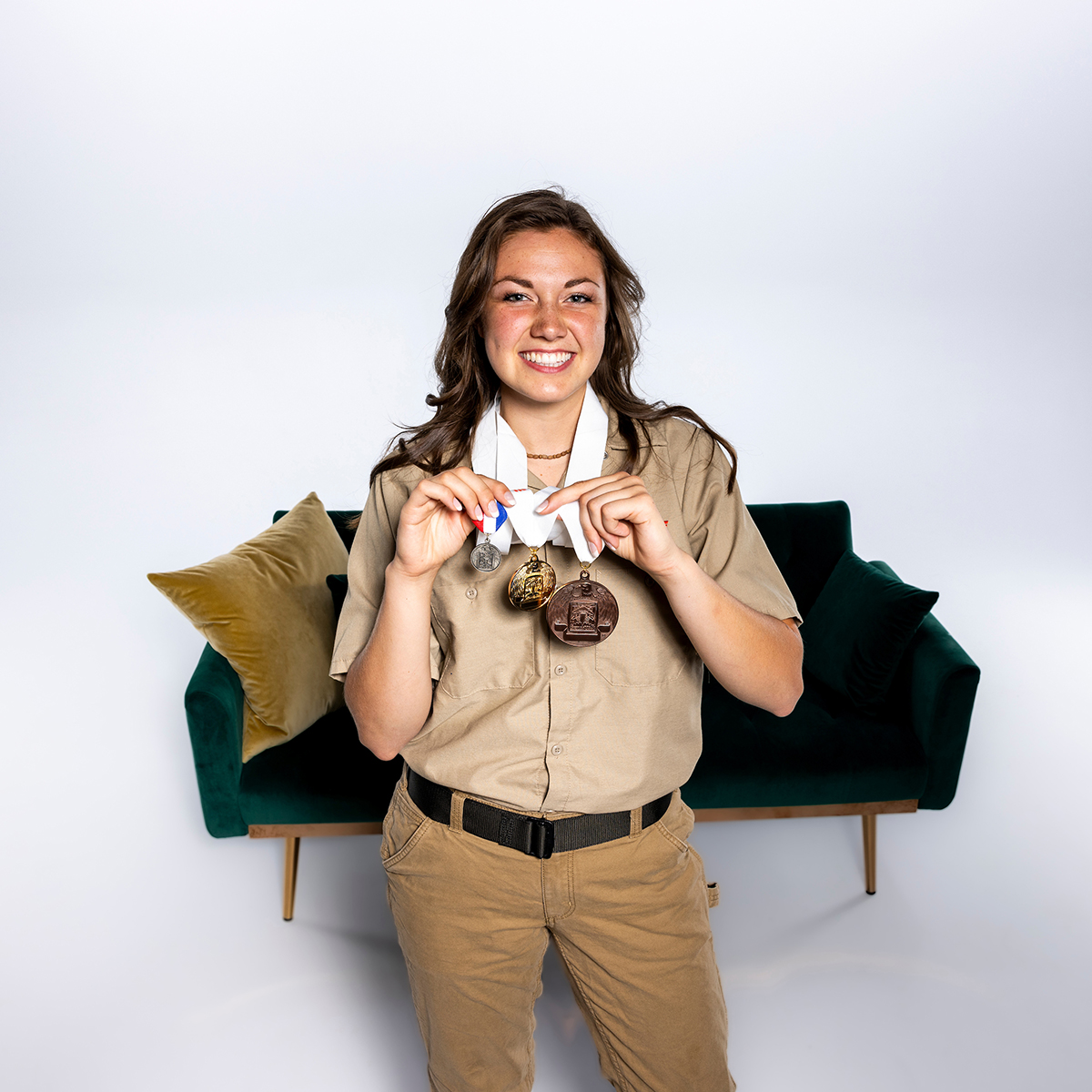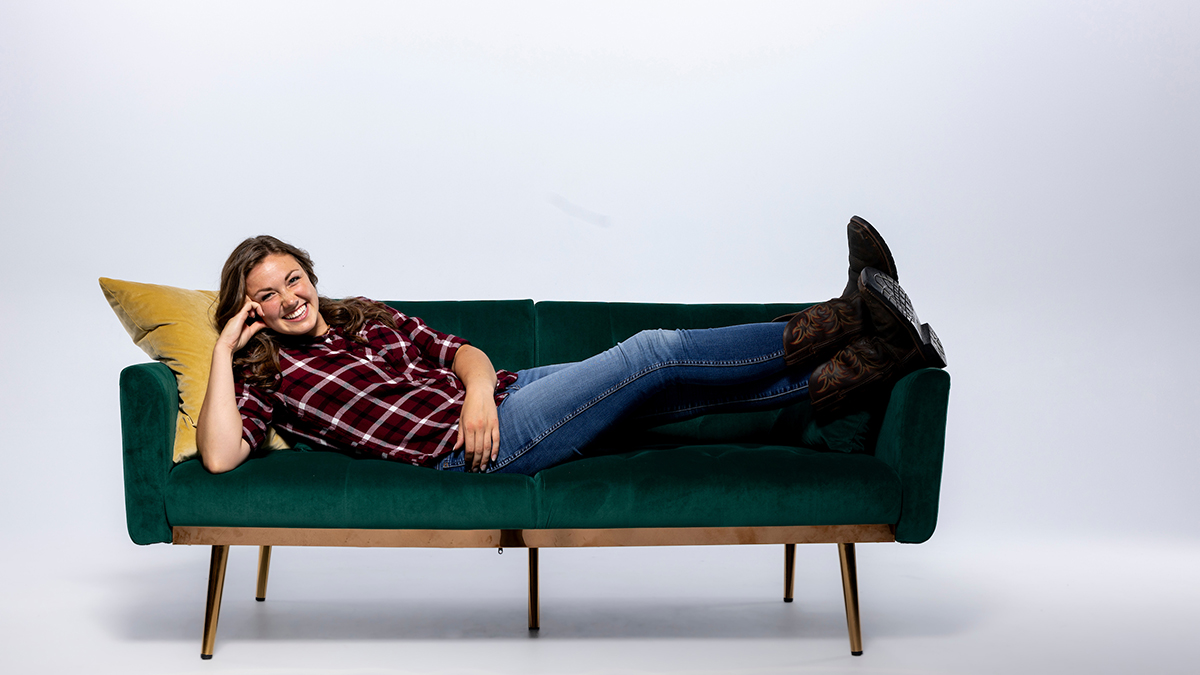As told by David Nelson
UVU is a place for helping you become the successful version of yourself.

Photo by
I grew up in Orem [where] I lived with my grandparents and my mom. My grandpa loved teaching me to be hands-on. I remember we went to RadioShack; he got me some alligator clips, some tiny little lightbulbs, a buzzer, and a tiny motor. He taught me how to make circuits. And I didn't realize how much that was going to become part of my life in the future. I loved seeing how the connections worked, but then I connected something wrong, and I said, “Grandpa, the battery's not working; it’s dead.” And he said, “Your battery's not dead. You need to wire it in this direction.” That was when the light actually flipped on, the physical light and the mental light.

My parents decided to homeschool me. It was a super positive experience for me. I loved learning at my own pace. I gained not only book skills but life skills, as well. Then, my junior and senior years of high school, I went to Lumen Scholar Institute, and that was all concurrent enrollment. The hardest part about the transition was the emphasis on getting the grade and just skimming the textbook to pass the quiz, and I hadn't had to do that before.
When I graduated, I decided to come to UVU [to study] biology. I wanted to go to vet school after that. I loved the biology program here. But I served a mission for the Church of Jesus Christ of Latter-day Saints. And as I was coming back, I decided I didn't want to go to vet school. I didn't want that kind of student debt, and my goal was to be a mom.
I had this crossroads moment. What do I want to do? What do I really want to study? Who am I? At that time, I talked with my next-door neighbor David Frame, a mechatronics professor at UVU, and my boss, who was studying in the mechatronics program. They were telling me about it, “You could do electrical engineering, but let me tell you about the hands-on part of this.” Then, [after] talking to some of the other advisors, I started in automation and electrical technology to later progress towards a mechatronics degree.

I love that the automation electrical technology degree is hands-on. We do an hour of theory in the morning, but then we go in the lab for three to four hours, and it's just work. You're putting things together, blowing fuses, popping breakers, burning clip leads, practicing, and trying new things out.
Coming into college, I knew I wanted a STEM degree. I love reading [and] books. But I knew I wanted something that I couldn't get from the library. [Being] hands-on in the lab, I'm not going to go buy a bunch of motors or a bunch of random equipment. I can access not just the equipment but also professors that have been trained in this.

Once upon a time, our professor, Scott Searle, said, “Hey guys, here's a problem. Draw me a diagram.” So, I draw it out. And then he's like, “Who's going to draw it on the board?” No one would, so I did. After that, every morning, I'd figure out the problem and then write it on the board. One day Scott realized and told me, “You have a gift for this. Why don't you compete in SkillsUSA?” So, I went and competed at State.
Leading up to [the competition], Scott Searle worked with me a lot. He trained me on things we were learning in labs but then built on it even more. That was a lot of extra hours I put in. I competed in industrial motor control, and I won gold which meant I got to go to nationals.
Come nationals, and I thought, “This is a lot bigger.” I remember being really nervous. I was in my hotel room and just praying to God, saying, “God, help me. Give me strength.” The competition was six hours of building this massive industrial motor controller.
At the end, it was announced that I got bronze. Out of 17 competitors, I was the only female and I got third place out of all of them — the little freshman girl. And this is my first year doing anything electrical. It was the most exciting feeling to go, “I did that. I finished it.”

There’s more help out there than you realize. There are professors, advisors, tutors, friends, and fellow students that are ready to help [and] encourage you. You'll have to put in some work. You’ll have to put [some] blood, sweat, tears, and prayers in there. But UVU is a place for helping you become the successful version of yourself.
Links:
Automation and Technology Degree
SkillsUSA Winners
Professor Searle
Professor Frame